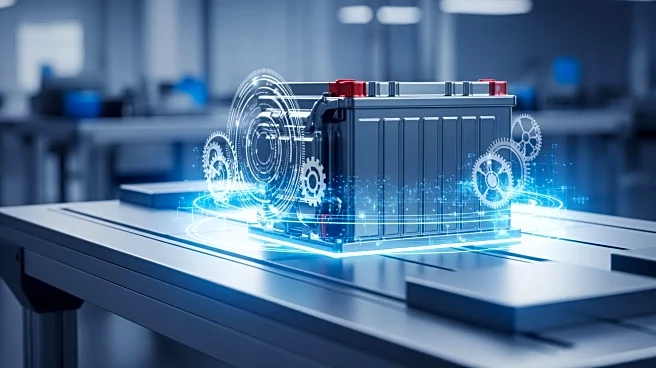What's Happening?
The European Union is considering the Industrial Accelerator Act (IAA) to enhance local production of electric vehicles (EVs) and batteries. The act proposes four pillars to ensure a significant share
of critical electric technology is produced within Europe. These include defining Made-in-EU rules for EVs and batteries, linking these rules to key policies and funding, introducing a vehicle carbon footprint label, and ensuring foreign direct investment strengthens Europe's industrial base. The initiative aims to reduce dependency on cheaper Chinese sourcing and foster domestic capacity. The EU's previous Net Zero Industry Act failed to achieve its goals due to lack of policy and funding, highlighting the need for a more forceful industrial policy.
Why It's Important?
The IAA represents a strategic move by the EU to secure its position in the global clean technology race. By fostering local production, the EU aims to reduce dependencies on foreign suppliers, particularly from China, and prevent deindustrialization and job losses. The act could strengthen Europe's economic, defense, and climate goals by creating lead markets for zero-emission vehicles and developing domestic value chains. The initiative also seeks to attract private investment by providing a clear business case for Made-in-EU products, potentially boosting the EU's competitiveness in the clean technology sector.
What's Next?
The EU will need to implement the IAA effectively to achieve its goals. This includes establishing clear criteria for foreign investments and ensuring they contribute to local value creation. The act's success will depend on its ability to integrate local content requirements into national tax incentives, state aid, and EU funding. The introduction of a vehicle carbon footprint label could drive demand for clean, locally made materials, further supporting the EU's green transition. The EU's approach to foreign direct investment will be crucial in ensuring that it strengthens rather than undermines Europe's industrial base.
Beyond the Headlines
The IAA could have broader implications for global trade and economic relations. By prioritizing local production, the EU may influence other regions to adopt similar policies, potentially reshaping global supply chains. The act also raises questions about the balance between free trade and protectionism, as the EU seeks to protect its industries while fostering innovation. The focus on green technology could accelerate the transition to a low-carbon economy, with long-term benefits for the environment and public health.









